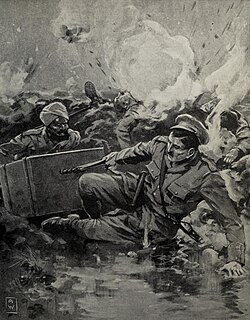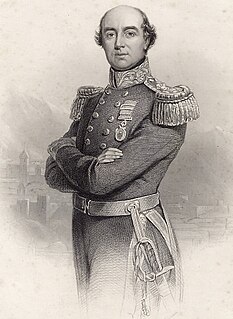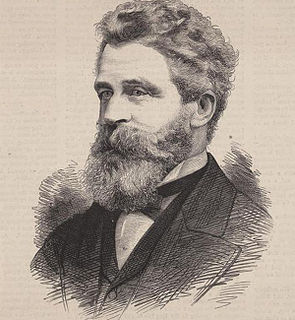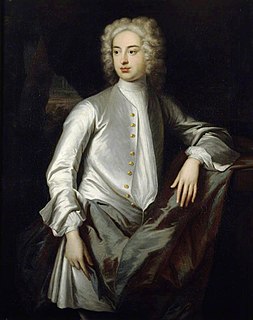Wroth baronets, of Blenden Hall (1660)

- Sir John Wroth, 1st Baronet (1627–1664)
- Sir John Wroth, 2nd Baronet (1653–1677)
- Sir Thomas Wroth, 3rd Baronet (1674–1721)
The Wroth Baronetcy, of Blenden Hall in the County of Kent, was a title in the Baronetage of England. It was created on 29 November 1660 for John Wroth. The baronetcy became extinct upon the death of the third Baronet in 1721. The third Baronet, whose seat was Petherton Park in Somerset, was member of parliament for Bridgwater, for Somerset and for Wells. The title became extinct on his death in 1721.

There have been six Baronetcies created for persons with the surname Brown, one in the Baronetage of Nova Scotia, one in the Baronetage of England, two in the Baronetage of Great Britain and two in the Baronetage of the United Kingdom. Two creations are extant as of 2010.
There have been a number of creations of baronets with the surname Smith.

There have been six baronetcies created for persons with the surname Smyth, two in the Baronetage of England, one in the Baronetage of Great Britain, one in the Baronetage of Ireland and two in the Baronetage of the United Kingdom. One creation is extant as of 2010.

The Strachey baronetcy, of Sutton Court in the County of Somerset, England, is a title in the Baronetage of the United Kingdom. This family was originally seated at Walden, Essex, where William Strachey was living under the rule of Edward VI. Later they moved to Surrey and at last settled at Sutton Court, Somerset. The title was created on 15 June 1801 for the politician and civil servant Henry Strachey. Sir Henry was private secretary to Lord Clive during his last expedition to India in 1764. He also took part in negotiations for peace with North America where he assisted the kings commissioners at Paris. He died in 1809 and was succeeded by his eldest son Henry, the second Baronet Strachey. His great-grandson, the fourth Baronet, was a Liberal politician. On 3 November 1911, he was created Baron Strachie, of Sutton Court in the County of Somerset, in the Peerage of the United Kingdom. He later served as Paymaster-General. The peerage became extinct on the death of his son, the second Baron, in 1973. The late Baron was succeeded in the baronetcy by his first cousin once removed, the sixth Baronet. He was the son of John Strachey, son and namesake of John Strachey, second son of the third Baronet. Strachey died January 2014 and did not use his title. Also, he had not successfully proven his succession and was therefore not on the Official Roll of the Baronetage, with the baronetcy considered dormant.
There have been two baronetcies created for people with the surname Jenkinson, both in the Baronetage of England. The seventh holder of the first creation was elevated to the peerage as Earl of Liverpool in 1796, a title which became extinct in 1851.

There have been seven baronetcies created for persons with the surname Parker, three in the Baronetage of England, two in the Baronetage of Great Britain and two in the Baronetage of the United Kingdom. Two of the creations are extant as of 2008. Though none of the different families of baronets were related, several supplied a number of flag officers to the Royal Navy.

There have been twenty one baronetcies created for persons with the surname Williams, eight in the Baronetage of England, three in the Baronetage of Great Britain and ten in the Baronetage of the United Kingdom. Only six of the creations are extant as of 2017.
There have been eight baronetcies created for persons with the surname Graham, two in the Baronetage of Nova Scotia, two in the Baronetage of England, one in the Baronetage of Great Britain and three in the Baronetage of the United Kingdom.

There have been nine baronetcies created for persons with the surname Cooper, one in the Baronetage of England, one in the Baronetage of Ireland and seven in the Baronetage of the United Kingdom.
There have been five baronetcies created for persons with the surname Ward, one in the Baronetage of England, one in the Baronetage of Ireland and three in the Baronetage of the United Kingdom. See also Warde baronets.
There have been two baronetcies created for members of the Reade family, both in the Baronetage of England. Both creations are now extinct.
There have been five baronetcies created for members of Clan Ramsay, four in the Baronetage of Nova Scotia and one in the Baronetage of the United Kingdom. The baronetcy in the Baronetage of the United Kingdom is extant as of 2022.

Sir Hugh Acland, 6th Baronet of Killerton Devon was a British landowner and politician who sat in the House of Commons from 1721 to 1727.

Sir Thomas Dyke Acland, 7th Baronet of Killerton in Devon and Petherton Park in Somerset, was Member of Parliament for Devon, 1746–1747, for Somerset, 1767–1768, and was High Sheriff of Somerset in 1751. He was a prominent member of the West Country gentry, and a famous staghunter who used as his hunting seats his wife's Exmoor estates of Pixton and Holnicote.

There have been three baronetcies created for members of the Sedley family of Kent, all in the Baronetage of England. All three creations are extinct.

There have been five baronetcies created for members of the old established family of Peyton of Peyton Hall in the parish of Boxford in Suffolk, all of whom were descended from Sir Robert Peyton (d.1518) of Isleham in Cambridgeshire, grandson and heir of Thomas Peyton (1418–1484) of Isleham, twice Sheriff of Cambridgeshire and Huntingdonshire, in 1443 and 1453. All the baronetcies are extinct.

The Rayney Baronetcy, of Wrotham in the County of Kent, was a title in both the Baronetage of Nova Scotia and the Baronetage of England. It was first created in the Baronetage of Nova Scotia on 19 December 1635 for Sir John Rayney of Wrotham Place, Wrotham, Kent. He was then created a Baronet in the Baronetage of England on 22 January 1642, with the same territorial designation. Rayney's father John Rayney, of West Malling, was a merchant and Alderman of London who bought Wrotham Place which became the family seat. The first Baronet had been knighted at the Coronation of Charles I in 1626. He served as High Sheriff of Kent in 1646. On the death of the fifth Baronet in 1721 the English baronetcy became extinct while the Scottish baronetcy became dormant.
The Sydenham Baronetcy, of Brimpton in the County of Somerset, was a title in the Baronetage of England. It was created on 28 July 1641 for John Sydenham of Brimpton, who the previous year had inherited the estates of his cousin Thomas Posthumous Hoby. The Sydenham family originated at the manor of Sydenham near Bridgwater, Somerset.

There have been two baronetcies created for persons with the surname Dudley, one in the Baronetage of England and one in the Baronetage of the United Kingdom. Both creations are extinct.
Sir Thomas Wroth, 3rd Baronet (c.1674-1721) of Petherton Park, Somerset was an English High Sheriff and Member of Parliament.